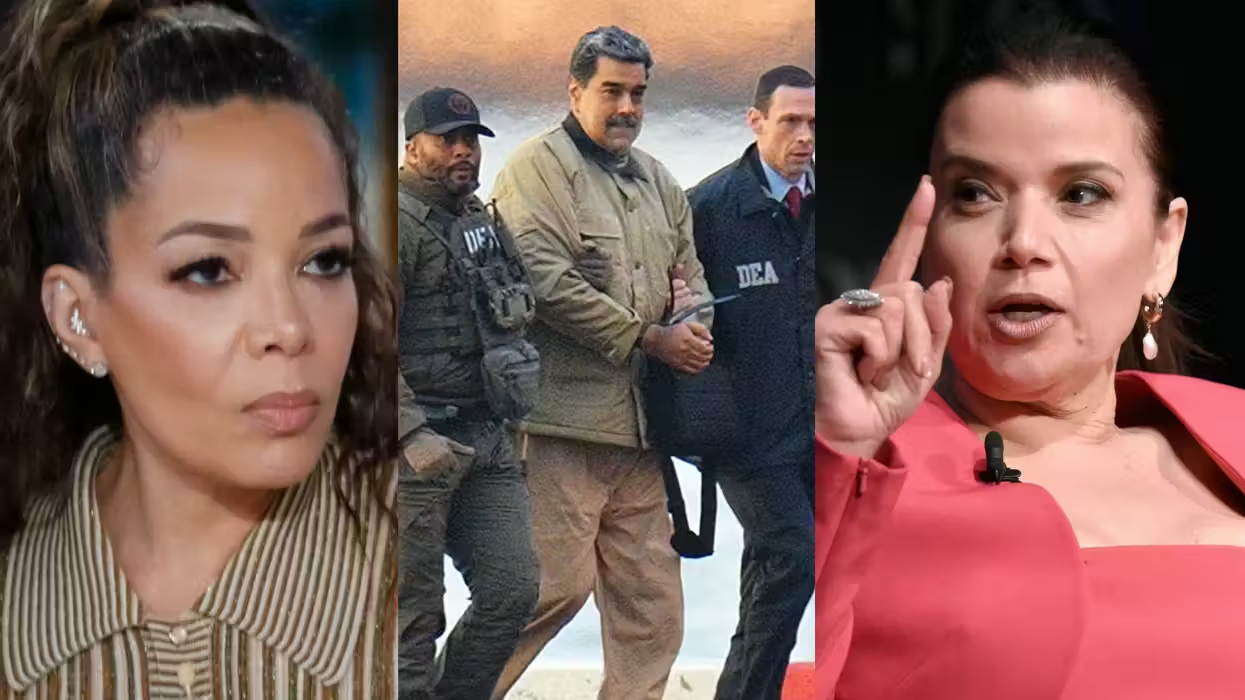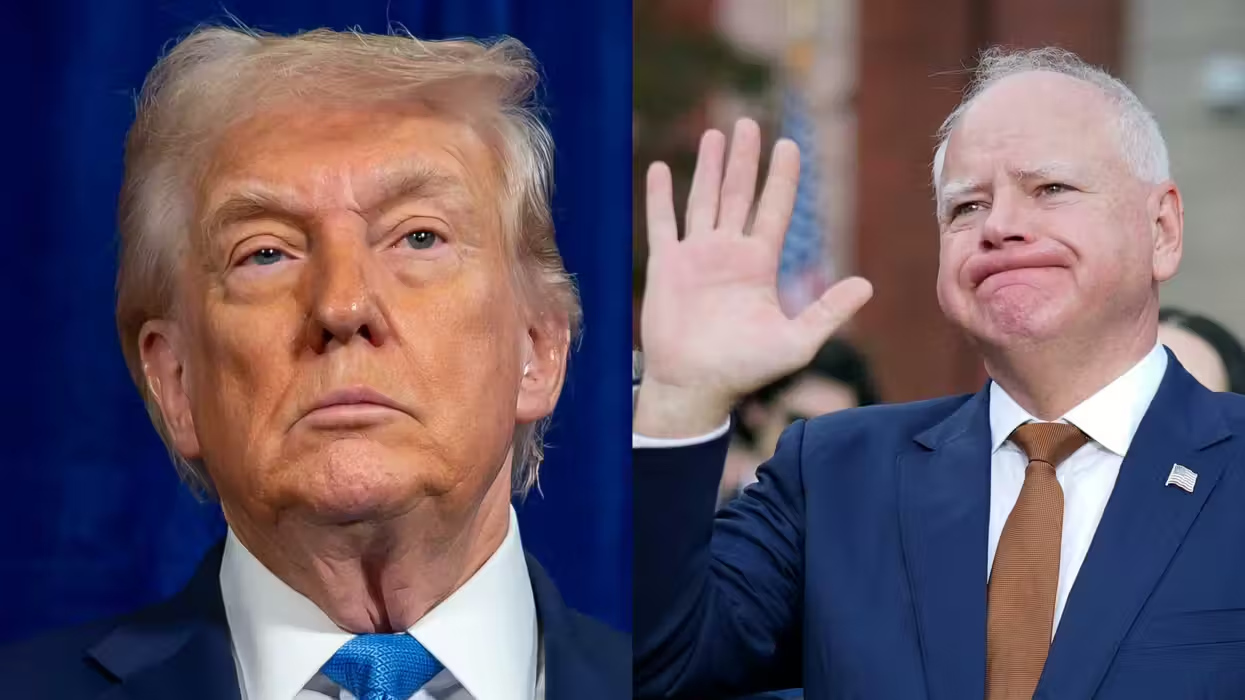© 2026 Blaze Media LLC. All rights reserved.
Remarkable Turnaround': US Lends Support to International Criminal Court for First Time
March 02, 2011
UNITED NATIONS (AP/The Blaze) – The U.N. resolution imposing tough sanctions against Libya marked the first time that the United States has given its support to the International Criminal Court and signified a remarkable turnaround, though it includes a key exemption demanded by the Obama administration.
The resolution adopted unanimously by the Security Council on Saturday refers the actions of Moammar Gadhafi's regime since Feb. 15 to the court's prosecutor who announced Wednesday that there is enough evidence of alleged crimes against humanity to warrant a full investigation. Prosecutor Luis Moreno-Ocampo is required to deliver an initial report to the council in two months.
"It's a historic vote by the United States government because it's the first time in a Security Council resolution the United States has voted affirmatively on the side of the International Criminal Court," said Richard Dicker, head of the International Justice Program at Human Rights Watch. "That's a positive step."
But the United States insisted on including a provision in the resolution to protect Americans from investigation or prosecution by the International Criminal Court, known as the ICC. It requires that any citizen of a country that hasn't joined the ICC be investigated or prosecuted in his home country — not by the ICC — for any alleged actions stemming from operations in Libya authorized by the Security Council.
Dicker called this "carve-out" for nationals from countries that aren't parties to the ICC "troubling" though limited since it only deals with the current situation in Libya.
"If, for example, there is a no-fly zone established by the council, and the U.S. dropped bombs and accidentally killed 100 Libyan school children, that U.S. airman or those who ordered the attack would be subject to the jurisdiction exclusively of a U.S. court — not the ICC," Dicker told the AP on Tuesday.
A Western diplomat said Wednesday that the ICC referral was the most important measure in the resolution because it's designed to change the minds of people around Gadhafi who now know that the war crimes tribunal is beginning to investigate the situation and if they carry out instructions from the Libyan leaders to bomb, attack or use violence against the civilian population they will potentially be subject to international justice. The diplomat spoke on condition of anonymity because of the sensitivity of the issue.
The International Criminal Court, which began operating in 2002, was established after a long campaign to ensure that those responsible for the most heinous crimes could be brought to justice. Under the Rome treaty that established the tribunal, the court can step in only when countries are unwilling or unable to dispense justice themselves for genocide, crimes against humanity or war crimes.
Currently, 114 countries have ratified the Rome statute and are parties to the statute. Libya is not a party to the ICC and therefore the Security Council stepped in to refer Gadhafi's deadly crackdown on anti-government protesters to the tribunal.
The Security Council has referred only one other situation to the ICC — the conflict in Sudan's western Darfur region in late March 2005.
Then, the council vote was 11-0 with the United States abstaining along with Algeria, Brazil and China. The Bush administration agreed not to veto the resolution only after the council included controversial concessions which guaranteed that citizens of countries not party to the ICC working in Sudan would not be handed over to either the ICC or any other nation's courts if they commit crimes in Sudan.
The exemption in Saturday's resolution on Libya demanded by the U.S. is narrower, and diplomats said it was also strongly backed by other council nations that are not parties to the ICC. China and Russia, both permanent council members, as well as non-permanent members India and Lebanon have not joined the court.
Liechtenstein's U.N. Ambassador Christian Wenaweser, president of the Assembly of State Parties to the ICC, told a press conference Tuesday that the U.S. support for the court and its sponsorship of the resolution was "an important development."
Former U.S. President Bill Clinton signed the Rome treaty on Dec. 31, 2000, but President George W. Bush renounced the signature, citing fears that Americans would be unfairly prosecuted for political reasons.
"We have seen for several months that certainly the U.S. is looking for a more positive engagement with the ICC," Wenaweser said. "The U.S. is participating again in the work of the Assembly of States Parties very actively. So there have been changes before, but certainly this is a very important step — while I don't think this will lead to ratification anytime soon."
He called the exception barring investigation or prosecution of citizens from non-ICC countries a "very, very narrow provision."
U.S. Ambassador Susan Rice agreed, telling reporters Tuesday "we have thought it important that if we were going to for the first time affirmatively support such a resolution to make sure that it was clear the limitations as to who jurisdiction applied to."
She said criticism "that somehow this provides a pass for mercenaries I think is completely misplaced."
"I don't think the International Criminal Court is going to spend its time and effort on foot soldiers that have been paid small amounts of money by Gadhafi," she said. "They're going to focus on the big fish."
France's U.N. Ambassador Gerard Araud told reporters after the vote that including the exception in the resolution "was a red line for the United States."
"It was a deal breaker," he said. "This is the reason why we accepted this unanimously."
Wenaweser and Jordan's U.N. ambassador, Prince Zeid al Hussein, who is leading the search to replace Ocampo after his term expires in June 2012, agreed that the council's referral of Libya was good for the court and will hopefully lead to new ratifications.
"Privately many ambassadors, ministers, will concede that eventually their countries will probably become state parties," Zeid told reporters Tuesday. "It's only a matter of time as to when."
Want to leave a tip?
We answer to you. Help keep our content free of advertisers and big tech censorship by leaving a tip today.
Want to join the conversation?
Already a subscriber?
more stories
Sign up for the Blaze newsletter
By signing up, you agree to our Privacy Policy and Terms of Use, and agree to receive content that may sometimes include advertisements. You may opt out at any time.
Related Content
© 2026 Blaze Media LLC. All rights reserved.
Get the stories that matter most delivered directly to your inbox.
By signing up, you agree to our Privacy Policy and Terms of Use, and agree to receive content that may sometimes include advertisements. You may opt out at any time.






